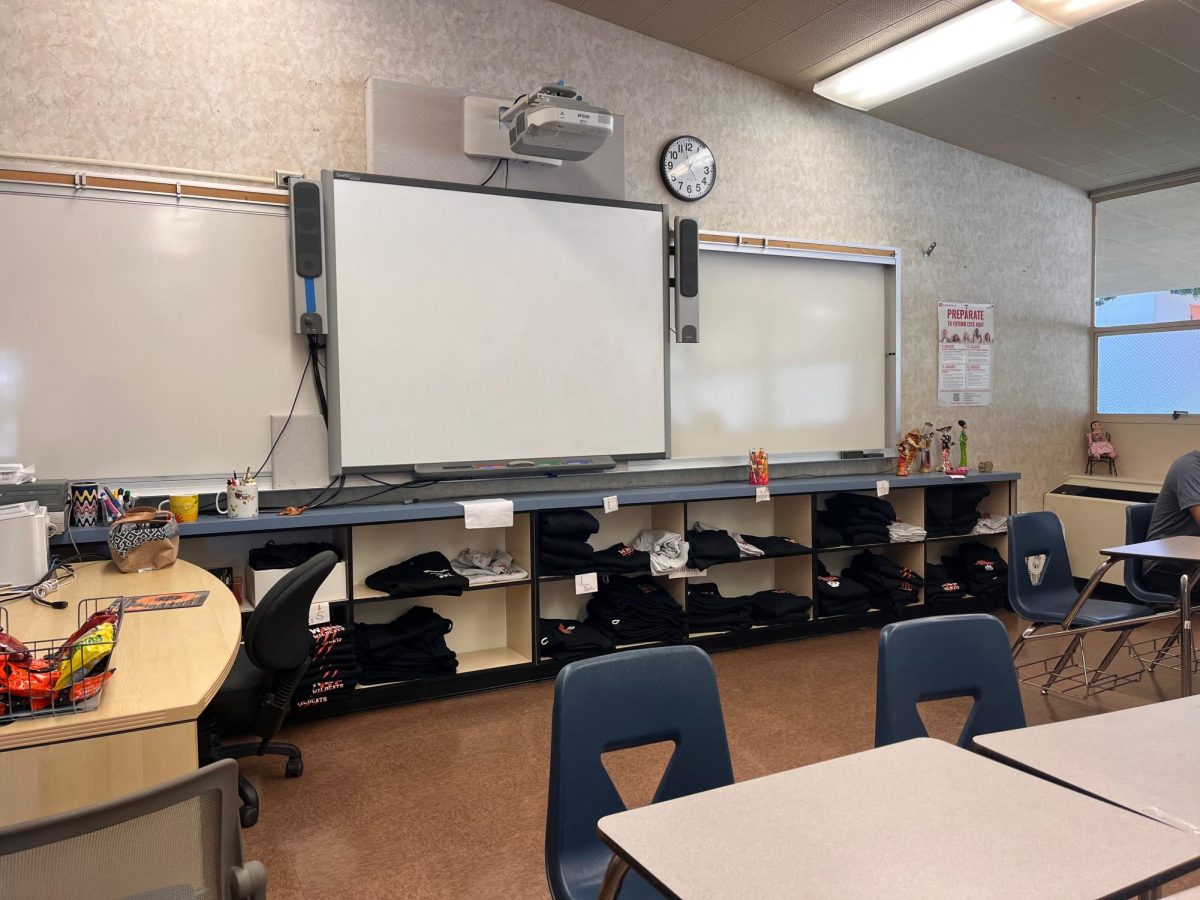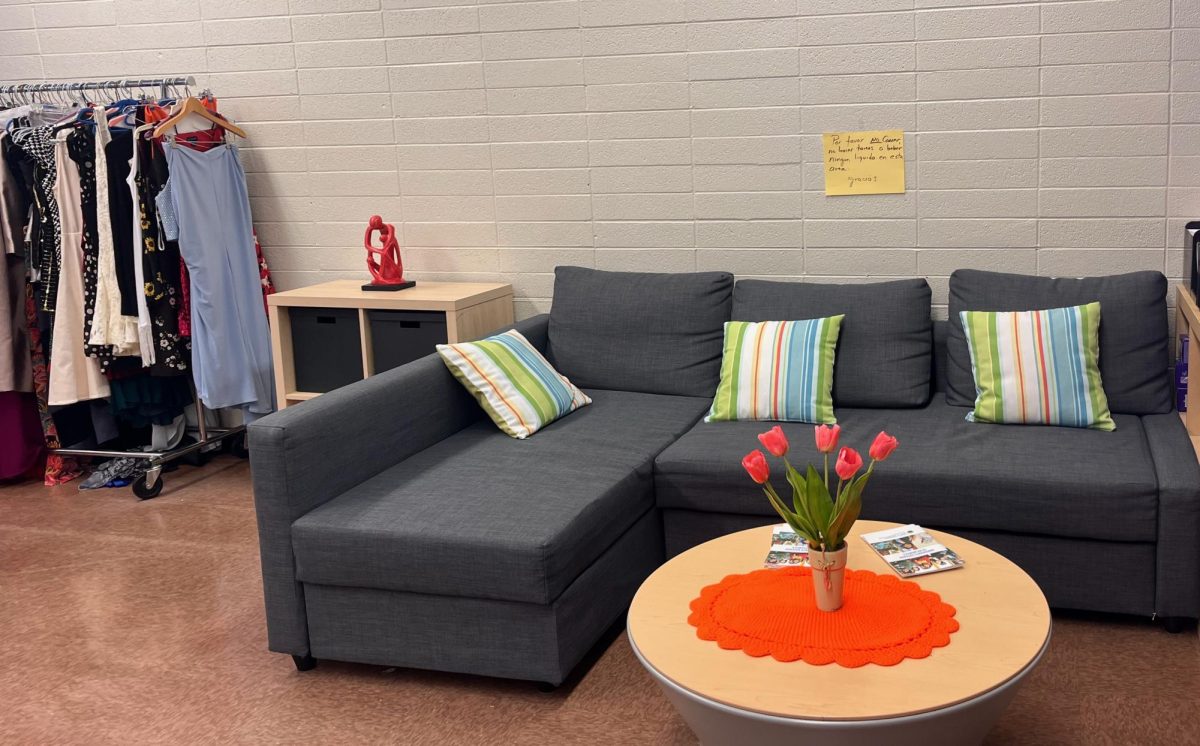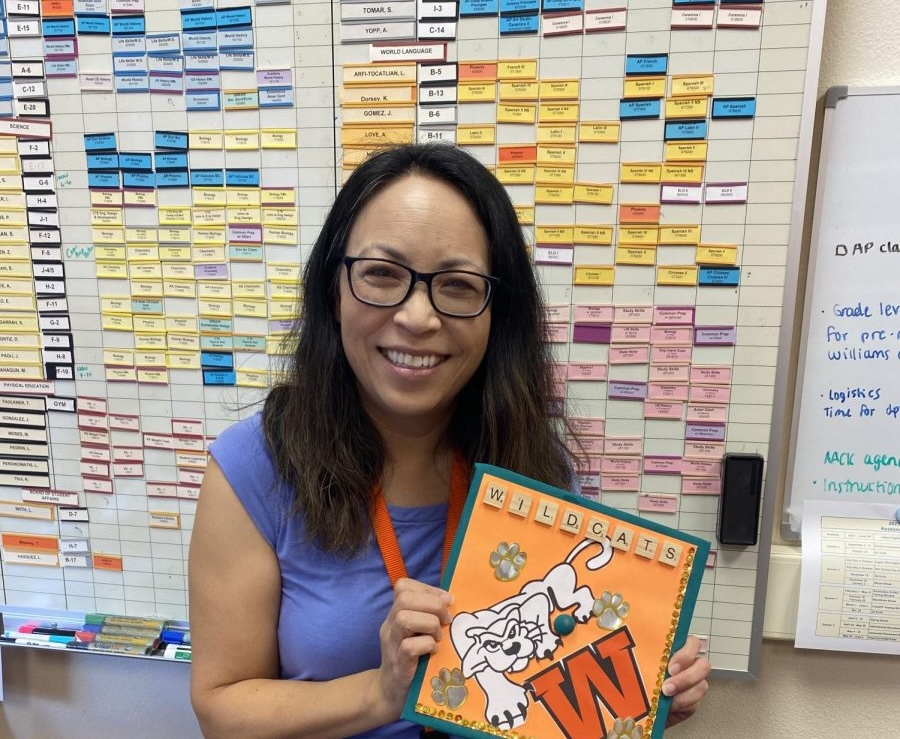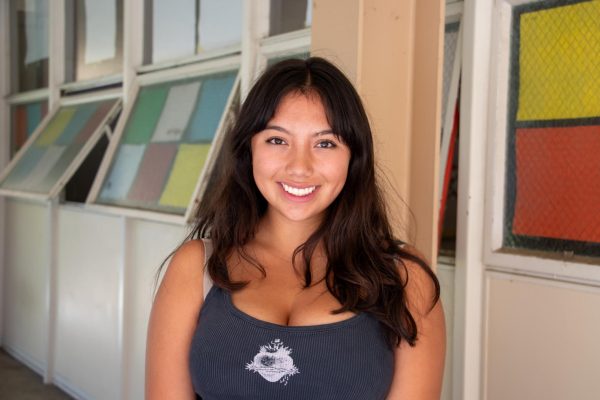The English Language Learners (ELL) program at Woodside supports students academically and socially despite navigating this year’s change in leadership.
Woodside’s ELL program represents roughly 14.1% of the student body. Along with classes that help newcomer students develop their English, specialized ELL history, math and science classes offer language support along with content. In order to place students in classes that can correctly support them, this year’s new bilingual resource teacher Jesus Cervantes works to understand the needs of each student.
“Sometimes students come without transcripts,” Cervantes said. “It’s a little harder to place them in their correct levels.”
Cervantes explained that transcripts or educational standards from foreign countries do not always transfer directly to Woodside, so additional placement and interview processes are needed.
“I’ve always had an eye for this position,” Cervantes said. “I’ve always been like, ‘I think I could make a difference here.’ Right now, I’m learning my job as I go along. It’s a lot of work, but it’s also very rewarding.”
Former bilingual resource teacher Jon Stewart now works as an instructional coach for the Sequoia Union High School District, but the tasks required by this position could not go unfilled. Before Cervantes stepped in to fill this position, he taught social studies for 18 years, including ELL versions of those courses.
“[Newcomer] students might need different resources,” Cervantes said. “For example, initially do they need bus passes? Do they need a backpack? What kind of help do they need just to start school? How are they going to get to and from Woodside?”
Cervantes said that Menlo-Atherton High School’s and Sequoia High School’s ELL programs receive more funding since their programs are bigger. With the funds Woodside has, bilingual parent coordinator Maricela Lopez helps students and parents access and apply for financial aid. Her classroom’s shelves held stacks of P.E. clothes she gives to newcomer students who may not be able to purchase these items on their own.

“I help parents with the meal applications,” Lopez said. “Because most of them are Spanish speakers, they don’t go online [to our website]. I help them to fill out the applications, because if they are approved or eligible, they can [also] get a bus pass if they need it, for the whole year.”
Lopez explained that attendance for English Learner Advisory Committee (ELAC) meetings has grown in the years since Karen Van Putten became principal. Lopez uses her 17 year experience teaching in Mexico, being a newcomer herself at one point and being a parent of an ELL student at Woodside, to build understanding and rapport between administration and parents.
“When I speak with parents, I can explain [my past], and they feel connected with me,” Lopez said. “I remember some parents [would] say, ‘You don’t understand us because you don’t know how hard we work.’ I said, ‘No, of course I know, because I have been in the same [position] that you are [in].’”
Outside of the necessary resources for attending and participating in school, Cervantes and Lopez want to make sure that newcomer students also foster one of Woodside’s conditions of success: sense of belonging. Cervantes can help students access discounts or fee waivers for school activities, like dances.
“They’re like, ‘but why would we go [to homecoming]?’” Cervantes said. “‘They don’t even play our music.’ I’m like, ‘give me a list. Maybe I could give it to Ms. With.’”

Most ELL students come from Spanish speaking countries, with the majority from Mexico and Guatemala. Other students come from El Salvador, Honduras, Peru, Columbia and this year one student is from China. Cervantes wants to make sure that newcomer students can have the traditional high school experiences and have a place in the community, regardless of fluency in English.
“A lot of times these students do go under the radar, unnoticed and ignored,” Cervantes said.
While handling the administrative side of intaking newcomer students and helping them succeed academically, staff like Cervantes and Lopez ensure that students’ needs are addressed in any way they can help.
“It’s different every day,” Cervantes said. “That’s what I love about this position. Every day is different. You never know what’s gonna happen.”






